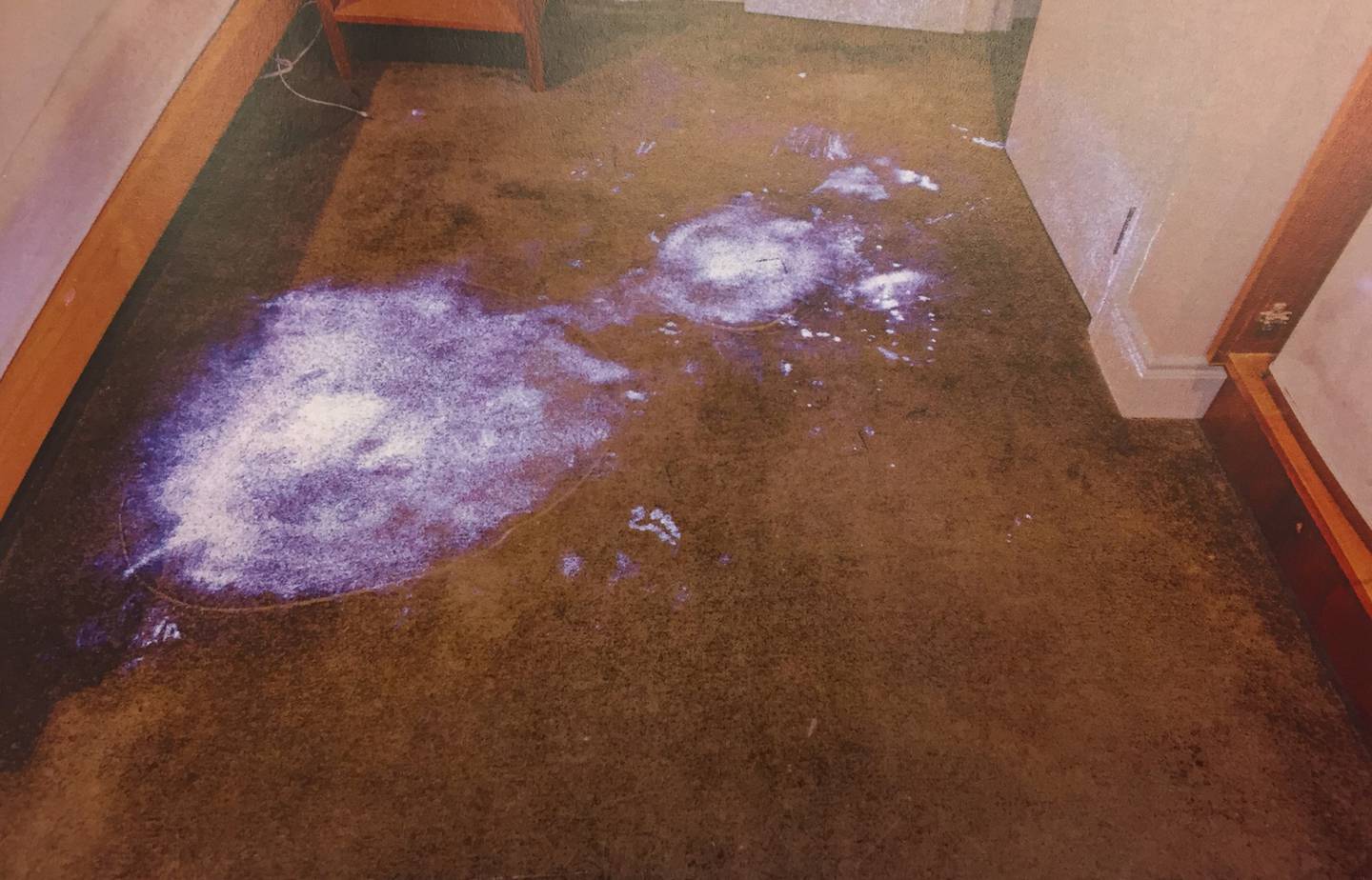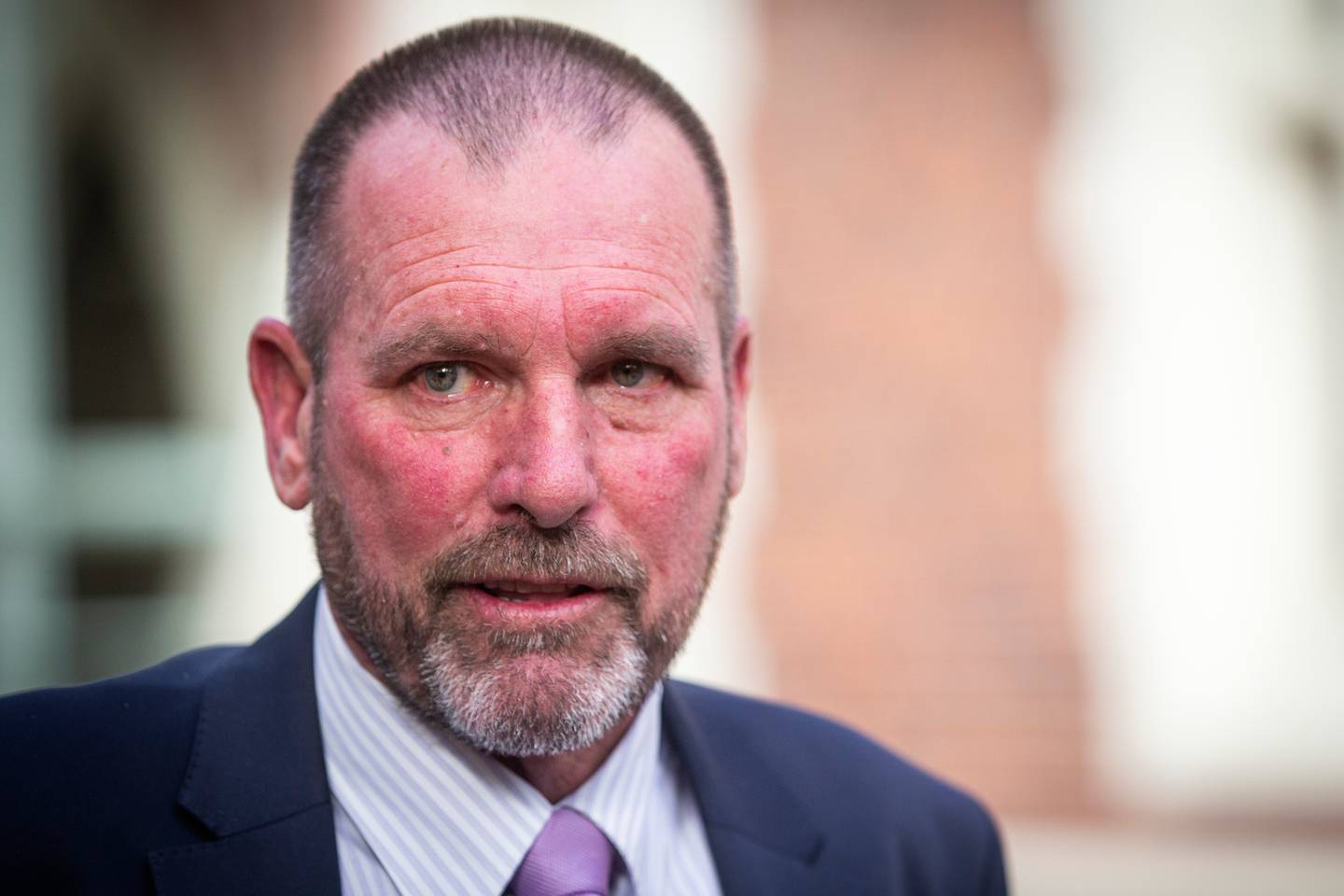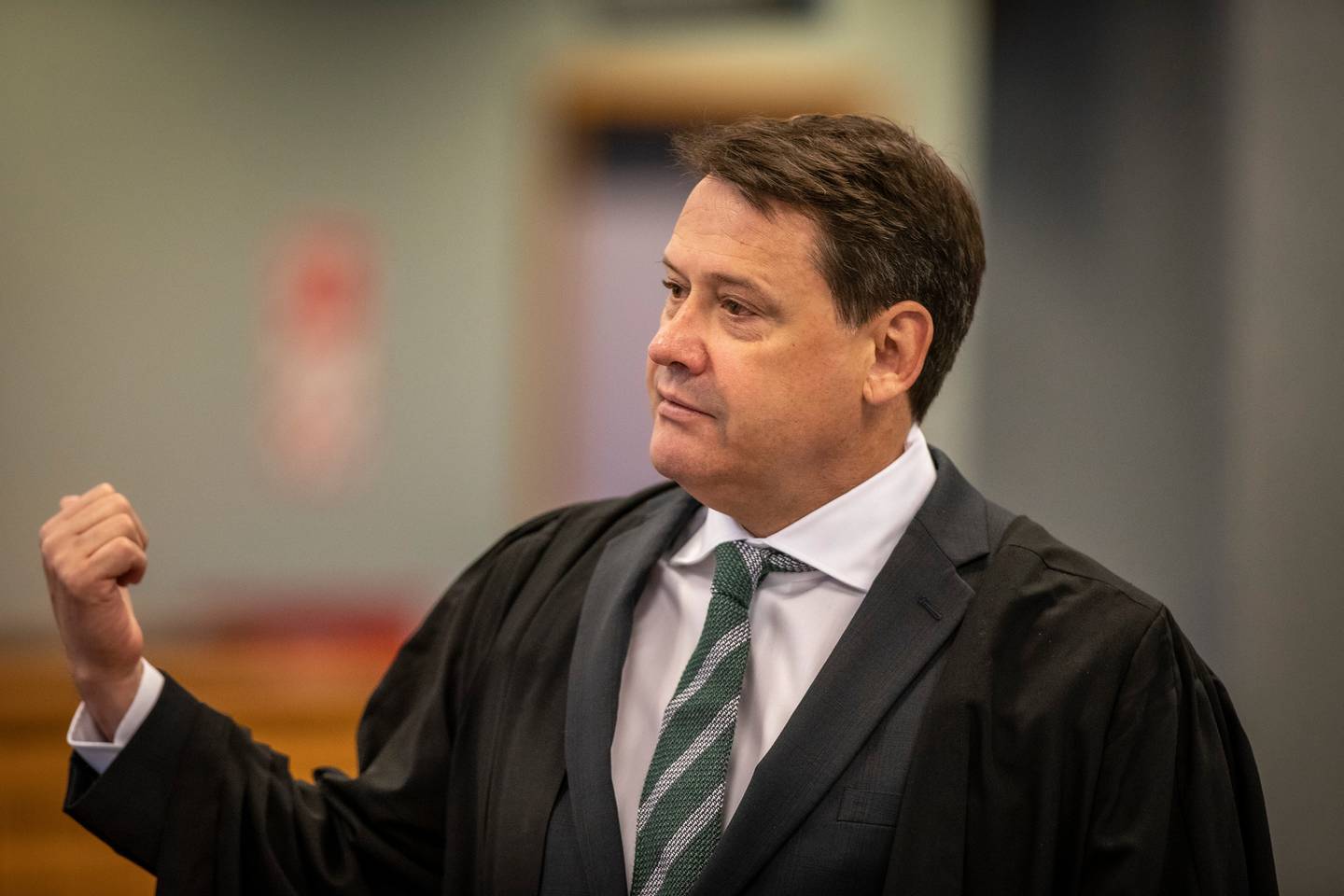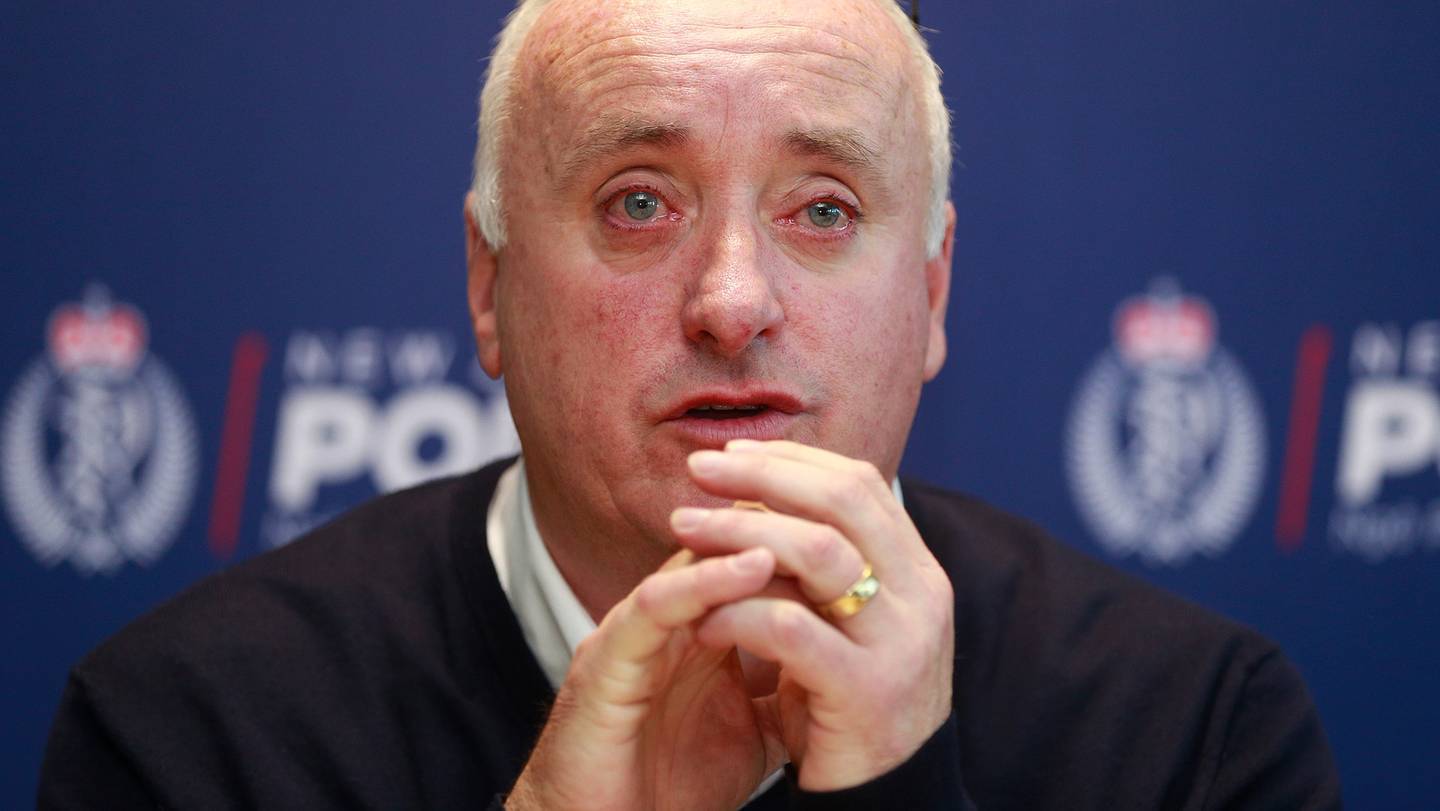
The top detective who solved the murder of British backpacker Grace Millane has described the moment police first encountered the man who killed her.
Millane was murdered on the weekend of her 22nd birthday in December 2018 in Auckland, by a man she had met through Tinder, then 26-year-old Jesse Shane Kempson.
A British documentary series called Social Media Murders featured an episode called "The murder of Grace Millane", which is set to be aired in New Zealand on TV3 tonight.
Interviewing key players in the New Zealand investigation – such as Detective Inspector Scott Beard and lead prosecutor Brian Dickey – it also shows early police interviews with murderer Kempson in the days following Millane's death.
Beard said Millane's disappearance had raised alarm bells from the beginning.
He told the documentary missing complaints were not unusual, and they thought she might have gone on a trip, or out to a small island without phone coverage.
"But this was different. The fact that on her birthday she hadn't contacted her family and her family hadn't been able to contact her – that was a huge red flag."

Grace Millane came to New Zealand as part of a year-long solo OE. Photo / Supplied
Friends explained they weren't immediately concerned when Millane didn't respond for a few days while she was travelling – but following her birthday they began to worry.
Beard said social media had been an important part of the investigation, and through Facebook they had quickly found the person later convicted of her murder.
"We'd found on Grace's Facebook page, the last person to comment was a Jesse Shane.
"We didn't know who that was. One of the [police] staff Facebook messaged Jesse Shane, then he gave his name which was Jesse Shane Kempson. The next day he contacts the police."
Detective Inspector and interviewer Ewen Settle, who interviewed Kempson in the days that followed, said he had initially come across well.
"At that time, he was just a person who had had a date with her the previous week. We didn't know when she'd disappeared exactly," Settle said.
"He presented well in the sense that he was wearing a three-piece suit with a hanky popping out of his collar, which is not something you ever see in New Zealand."
The documentary showed the original interview footage, which shows Kempson telling the interviewer he had parted with Millane at 8pm, and gone on to another pub alone.

Jesse Kempson murdered Grace Millane. Photo / NZ Herald
But at the same time, a team was scouring CCTV footage throughout Auckland city and it became clear elements of Kempson's story did not add up.
"We know he's a liar, he's very comfortable and plausible in his lies. And he's very believable, and as I said, looked very presentable," Beard said.
Although police knew Kempson had lied, Beard said there was no evidence at this point anything had happened to Millane.
A search warrant was issued for Kempson's apartment and forensic analysis conducted with a chemical called luminol – which showed a large presence of blood.
"Luminol will react with blood and glow in the dark," explained Beard.
"When you see the inside of Kempson's apartment and you see the luminol which is indicating all the blood in that room, you go 'Oh my gosh, what's he done?"

Luminol was used on the carpet of the accused's room in the City Life Hotel. Photo / Supplied
A second interview with Kempson saw the suspect completely change his story.
Interview footage shows Kempson telling Settle that Millane had come back to his apartment, where he said she began talking about the erotic movie Fifty Shades of Grey.
"We started having, I guess, violent sex and she told me to hold her throat," Kempson said.
"And then at that point we'd finished – all I remember is falling asleep in the shower. I woke up the next day and initially I thought Grace had left, and I saw she was lying on the floor.
"I saw that she had blood coming from her nose. I screamed, I yelled out at her and I tried to move her to see if she was awake."
Kempson was asked if he considered calling an ambulance, to which he replied he dialled 111 but didn't hit the button, because "I was scared of how bad it looked."

Detective Inspector Scott Beard speaks to the media at the Auckland High Court after the jury delivered a murder verdict. Photo / Jason Oxenham
He said he purchased a suitcase because he was "freaking out".
"I went to the Warehouse at the Atrium and bought a suitcase. I remember putting Grace in the suitcase. I was just in shock the whole time."
Kempson sounded as though he was crying as he recounted putting the suitcase in the back of a hire car, and driving it to the Waitakere Ranges, where he buried her body.
He later took police to where he had buried Millane's body, and footage was shown of a visibly emotional Beard telling media they had found her.
CCTV footage showed Kempson putting Millane's belongings into a black plastic bag, where he deposited them into a rubbish bin in Albert Park.
Kempson was placed under arrest for murder after telling the interviewer Millane had died in his company. But he denied that she had died at his hand.
The documentary also spoke to a former flatmate of Kempson, Millie Mason, who said he had been initially "charming" but soon gave the flatmates a "bad feeling".
The former flatmate of Grace Millane's killer says their household knew 'you shouldn't be near him alone'. Video / ITV
She said Kempson would tell stories that didn't seem real, and that another flatmate had once been so nervous to be alone in the house with him when he was drunk that she slept with a knife.
"You just knew you shouldn't be near him alone, it makes you wonder what else he was hiding," Mason said.
"You feel a bit guilty, maybe we could have done more. She should have been safe."
The trial for Millane's murder began in November 2019, with Kempson's legal team arguing her death was accidental and occurred during rough sex.
The documentary spoke with lead prosecutor Brian Dickey, who said he struggled with the proposition as a defence for murder.
"Rough sex in that context has to mean that you hold that person around the neck with a degree of force that you have to maintain for what's probably minutes.
"The person probably goes unconscious, probably remains lifeless under your hold and then you have to carry on.
"It's much more likely to be about what's going through that bloke's mind and his attitudes towards that woman than it is to be an accident of rough sex."

Brian Dickey, the Crown prosecutor at Grace Millane's murder trial. Photo / Michael Craig
Kempson's actions after Millane's death became a key element in the trial, showing his calculated decisions in purchasing the suitcase, disposing of Millane's body and using bleach to clean the mess in his apartment.
Dickey said Kempson was "cool, calm and in control – where's the evidence of panic?"
While he said the notion of accidental death following rough sex could be plausible, the external evidence showed Kempson's actions were calculated.
"There's a plausible defence narrative there until you start to look at what starts to make it implausible," he said.
Kempson's access to four pornographic websites while Grace's body was in the room further highlighted this lack of panic.
Kempson was convicted of murdering Millane and in February 2020 sentenced to life imprisonment, with a non-parole period of 17 years.

The late David Millane, pictured during the search for his then missing daughter. Photo / Doug Sherring
The documentary closes with a statement provided by the Millane family.
"Grace was a kind, fun-loving adventurous daughter, sister, cousin and friend with her whole life ahead of her. She was enjoying the first of what would have been a lifetime of adventures before her life was cruelly and brutally cut short."
"Her sense of fun, adventure, her love of travel and exploring along with her ability to light up any room she walked into with her generosity of spirit are the memories we as her family cherish and how we will remember her."
"We are so pleased the [UK] government are stopping rough sex being used as a defence, it needs to be called what it really is and that is murder."
"It felt like Grace on trial, yet unable to defend herself. Hopefully no other family with have to go through this, and men will stop using this defence as an excuse to kill women, knowing they can get a lesser sentence."
"Grace is and always will be our sunshine."
In December 2020, Kempson was finally named in New Zealand media after a prolonged suppression order when it was also revealed he faced two other trials for sexual violence against two further women.
He was found guilty of all nine total charges at both trials, including rape.
Take your Radio, Podcasts and Music with you









